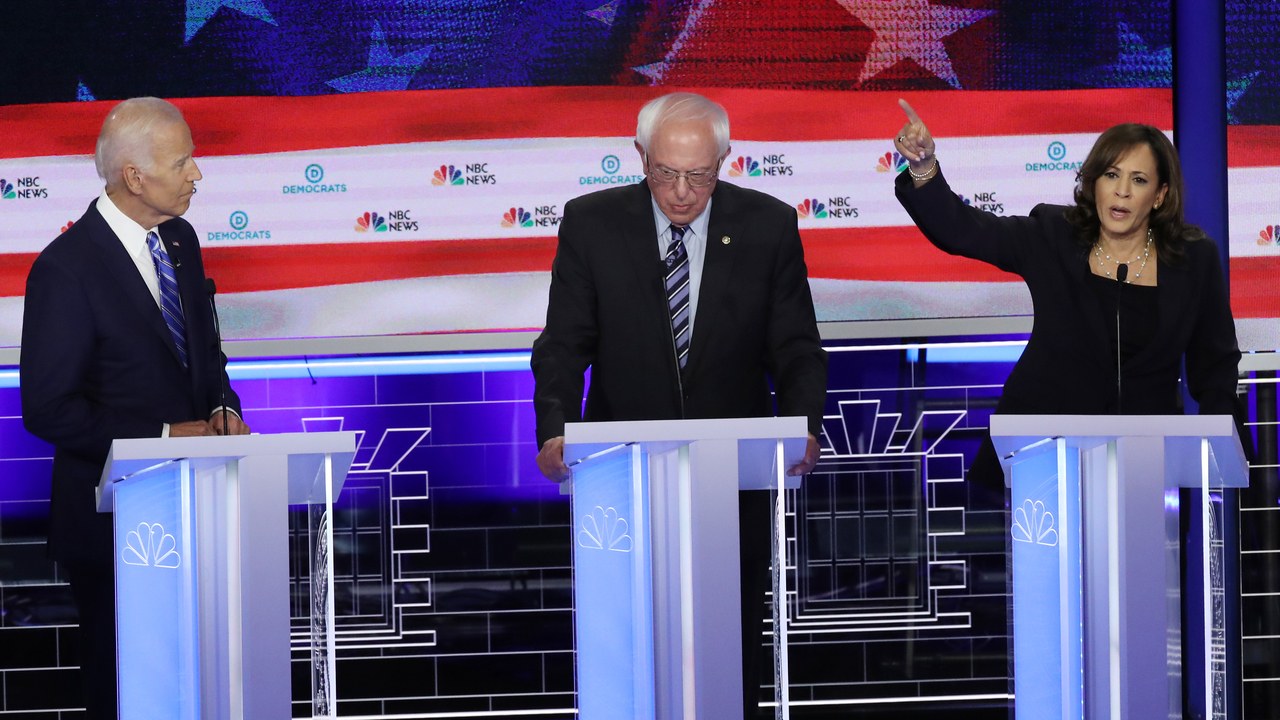Watch Kamala Harris Confront Joe Biden About Race at the Democratic Debate

Last night (June 27), the second group of Democratic presidential candidates—including Joe Biden, Kamala Harris, Kirsten Gillibrand, Bernie Sanders, and Pete Buttigieg—took the stage to debate issues like immigration, health care, and climate change.
But it was a tense exchange about race between Harris and Biden that has everyone talking, both online and off. Harris brought up the subject of race and talked generally about the fact that discrimination is still very much an issue in the U.S. before directing her comments at the former vice president.
“I do not believe you are a racist and I agree with you when you commit yourself to the importance of finding common ground. But I also believe — and it’s personal and it was hurtful to hear you talk about the reputations of two United States senators who built their reputations and career on the segregation of race in this country,” she said. “It was not only that, but you also worked with them to oppose busing. There was a little girl in California who was part of the second class to integrate her public schools, and she was bused to school every day. That little girl was me. So I will tell you that on this subject, it cannot be an intellectual debate among Democrats. We have to take it seriously. We have to act swiftly.”
She was referring to controversial comments Biden made earlier this month where he talked about his abilities to get things done with people across the aisle during a bygone time of “civility,” mentioning two notable segregationist senators, James Eastland and Herman Talmadge. During his time as a senator, Biden also opposed a federal mandate on busing as a means of integrating public schools.
Biden looked visibly shocked to hear Harris reference herself as a young student who was bussed to school and went on to respond to her other claims. “It’s a mischaracterization of my position across the board. I did not praise racists. The fact is that, in terms of busing, the busing, I never — you would have been able to go to school the same exact way because it was a local decision made by your city council,” he said.
He reiterated his record on other matters related to civil rights and commented on his choice to become a public defender, not a prosecutor like Harris, before shutting down his own argument due to time. “I supported the ERA from the very beginning. I’m the guy that extended the Voting Rights Act for 25 years … I’ve also argued very strongly that we, in fact, deal with the notion of denying people access to the ballot box. I agree that everybody, once they, in fact — anyway, my time is up. I’m sorry.”
